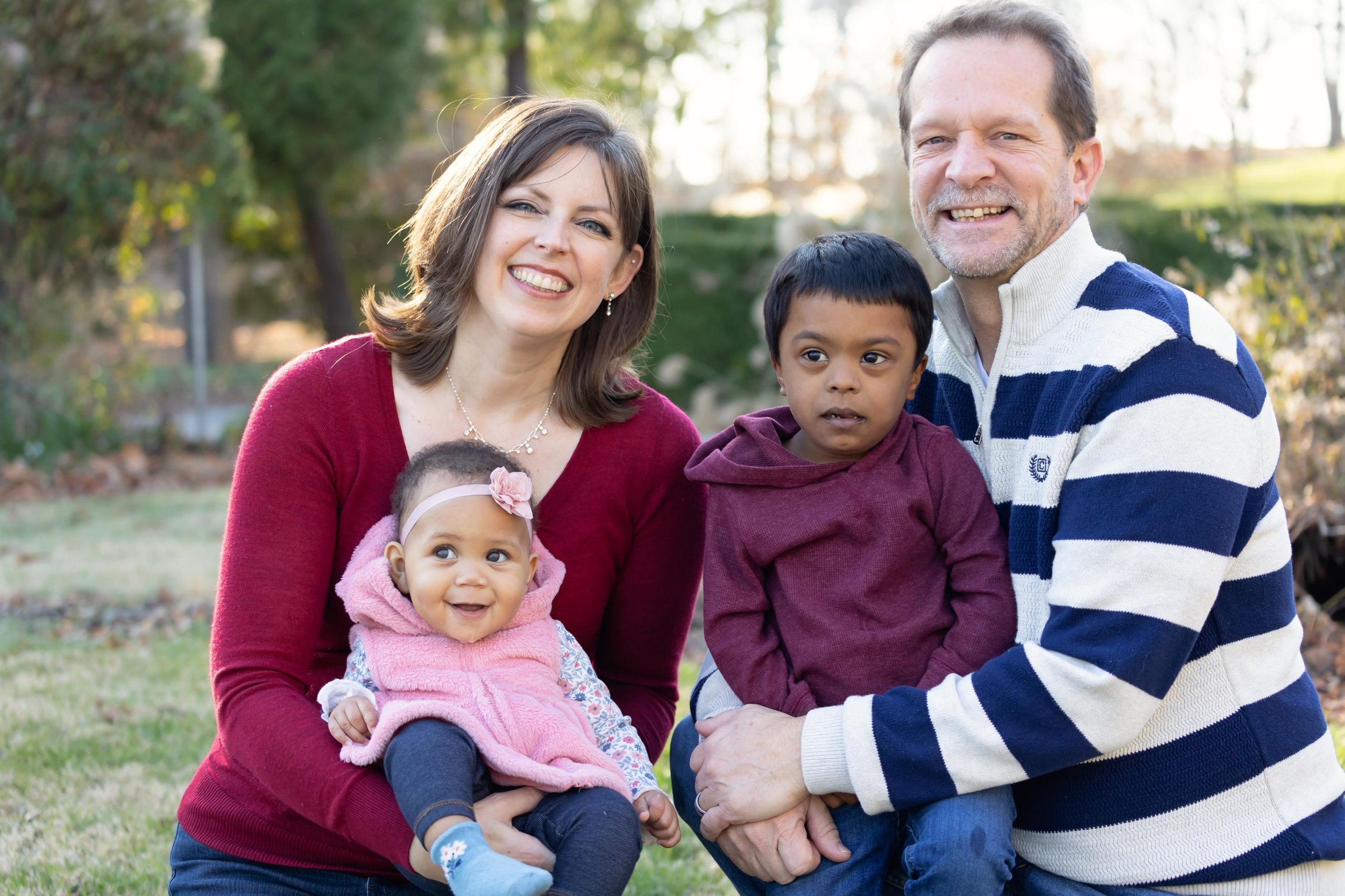Photo Credit: Kristin Page
How did you two meet?
We met much later in life than most. We were paired on eHarmony, and after the obligatory question phase, we quickly moved to emailing. There were no pulled punches. Rochelle’s first email to Barrett said, “So today I preached at my church… what are your thoughts on women in ministry?” Barrett’s answer was supportive, and the way was opened for meeting in person.
It was in December when we had our first date, and Rochelle decided to bring a plate of ginger molasses cookies with her. Her thinking was simple: “If the date goes well, Barrett gets the cookies. If the date goes poorly, Rochelle will eat the cookies on her way home.” We got kicked out of the restaurant at closing time, and Barrett was presented the cookies. We were married 8 months later.
You’ve had the recent adventure of adopting 2 children. What has that been like?
We always wanted to have a family and thought two children would be a good number. But at our ages, that proved more challenging than we had anticipated. We struggled with fertility and embraced that adoption was God’s way of adding kids to our lives. Never did we imagine how great or crazy this would be! There were times in this process where it was really challenging. Dealing with the disappointments of miscarriage and the unrealized hopes of adoption as we waited meant there were tears, questions, and many prayers.
When we first heard about Isaac, he was 2 weeks old. Without sharing the sacred details of his birth, we were presented with the profile of a baby boy with Down syndrome and other medical concerns and were cautioned to seek medical advice before allowing the match consideration to go forward. We had 18 hours to say yes or no to moving forward. It would have been hard to turn Isaac down because his profile came with pictures (and as many of you know, he’s adorable!), but we talked with a doctor friend to hear projections about the future. Her biggest suggestion was that if we proceeded, we would need to consider moving to a bigger town to allow for greater access to the care he would need. We talked with our parents and prayed and decided that we did want to proceed with the match and see where God took it. We didn’t know that in saying yes, we were the only family out of over a hundred who did. In a miraculous move that can only be ascribed to God, two days later Rochelle was unexpectedly contacted by Wheaton College about a job possibility. With our heads spinning, we realized God was up to something. Exactly two weeks after being presented with Isaac’s profile, we were walking home with him, and two months later Rochelle was hired at Wheaton. While the journey has included a ton of doctor’s visits (one year alone included 3 surgeries and over 50 medical and therapy visits!) we are exceedingly grateful for the bundle of energy (!) and joy that Isaac brings to the world.
How did you happen to adopt again?
We had always been told that 2 weeks (from initial contact to holding the baby) was a fast adoption. Isaac’s adoption finalization, however, was slow. It took us a couple years, and so we were delayed in seeking a second adoption. When we did, we were a little unsure. We wanted a second child and thought Isaac would be a great big brother, but our ages made us doubt. Friends we grew up with were becoming empty nesters and grandparents. Were we really wanting to take on another infant? We prayed and felt led to at least keep our home study active. Our adoption agency was tiny and encouraged us to connect with other agencies in order to broaden our reach, but our fleece before the Lord was that we wouldn’t do more than keeping our home study active with our present agency. If God wanted to add a second child, he would. If our home study expired first, we would take that as God’s direction that we were to be a family of three.
As our home study neared expiration, we both had mentally started to move on. But unexpectedly we got a call. On a Tuesday night in March, our agency called to say we were being considered with several other profiles for an adoption. While this excited and terrified us, we anticipated a usual timeline, giving us time to prepare. How wrong we were! With the birth mom in active labor, we were informed that we were the top pick. We had until the morning to give a yes or no (less than 12 hours). We were literally left speechless. It took us several minutes to even find words. It was clear very quickly that God had a new kiddo to add to our family and that he had an incredible sense of humor. Less than 22 hours after we were first contacted by our adoption agency, we were holding our baby girl. We had no clothes, no formula, no crib. We had to borrow our social worker’s car seat to get Annelise home! It took us a good 6 weeks to really get our heads around what just happened, but we have never once regretted the speed. Adding Annelise to our lives has been a joy beyond anything we could have anticipated, and we are so grateful for her calm and joyful spirit. (Nursery workers, she really doesn’t cry all the time!).
Where do you see God at work as you raise these children?
Even though we get called Isaac and Annelise’s grandma and grandpa from time to time, we don’t regret adoption in our “older” age. God knew this was our time. and he is sufficient for this unusual journey we have all undertaken.
Perhaps the thing that amazes us most is how we see God already using our children. Isaac endears himself wherever he goes, and we find that the joy and togetherness he brings with his presence is truly sacred. Isaac loves to sing and lights up with the liturgy at church (as many of you know). He once mentioned Father Kevin at home and immediately put his hands out announcing, “For the people for God.” His love of God--and the ways he shines this--pulls others around him into joy and worship. Annelise is a bright, smiley girl who brings calm and joy to others.
Raising a special needs kiddo has challenges, and there are areas where we are exhausted and times when we feel utterly defeated. It takes us longer to get to certain stages and even longer to get through them. And at our ages, when most of our peers are moving to the empty nest stage of life, we sometimes feel a little on the edges because we’re just starting out. But then we realize that God knew this all along and we not only feel blessed with how God has equipped us to parent now, but we also look at the amazing community God has gifted us: our family, Church of the Savior, Early Childhood, and a great team of medical professionals. We know that we are not alone in the burdens we carry, and we get the great privilege of sharing the overwhelming joys that we experience, too. So don’t mind the extra gray hairs that you see us sporting these days. We are exceedingly blessed to have walked an unusual path. Some may say we’re late bloomers, but in God’s plan, we’re just on time.







